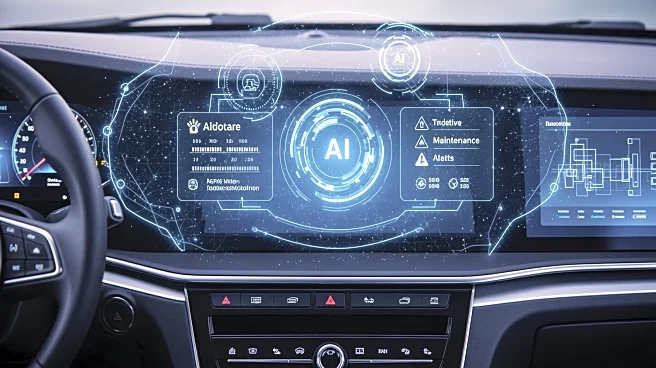What's Happening?
Fleet management is undergoing a transformation with the integration of artificial intelligence (AI) into preventive maintenance inspections (PMIs). As economic pressures and supply chain challenges persist,
fleets are extending the life of their trucks, making maintenance more critical. AI tools are now being used to analyze historical PMI data, allowing fleet managers to forecast component failures and make informed decisions about repairs and replacements. This shift from reactive to predictive maintenance is reducing downtime and improving fleet reliability. AI algorithms can sift through thousands of inspection records to identify wear-and-tear trends, enabling proactive maintenance strategies.
Why It's Important?
The integration of AI into fleet management is significant as it addresses the rising costs associated with new trucks and frequent repairs. By extending the life of older vehicles, fleets can minimize breakdowns and optimize operational efficiency. AI-driven insights allow for smarter decision-making, reducing surprises and enhancing return on investment (ROI) for fleet assets. This technological advancement not only improves reliability but also helps fleet managers standardize component performance and optimize service intervals based on real-world data, rather than manufacturer guidelines.
What's Next?
As AI continues to evolve, fleet managers can expect further enhancements in predictive maintenance capabilities. The ongoing analysis of PMI data will likely lead to more accurate failure predictions and optimized service schedules. Stakeholders in the fleet industry may increasingly adopt AI tools to stay competitive and reduce operational costs. Additionally, the broader application of AI in other sectors could drive innovation and efficiency across various industries.
Beyond the Headlines
The ethical implications of AI in fleet management include concerns about data privacy and the potential for job displacement as automation increases. However, the long-term benefits of reduced environmental impact due to fewer breakdowns and optimized resource use could outweigh these concerns. The cultural shift towards embracing AI technology in traditional industries like fleet management may also influence other sectors to adopt similar strategies.











